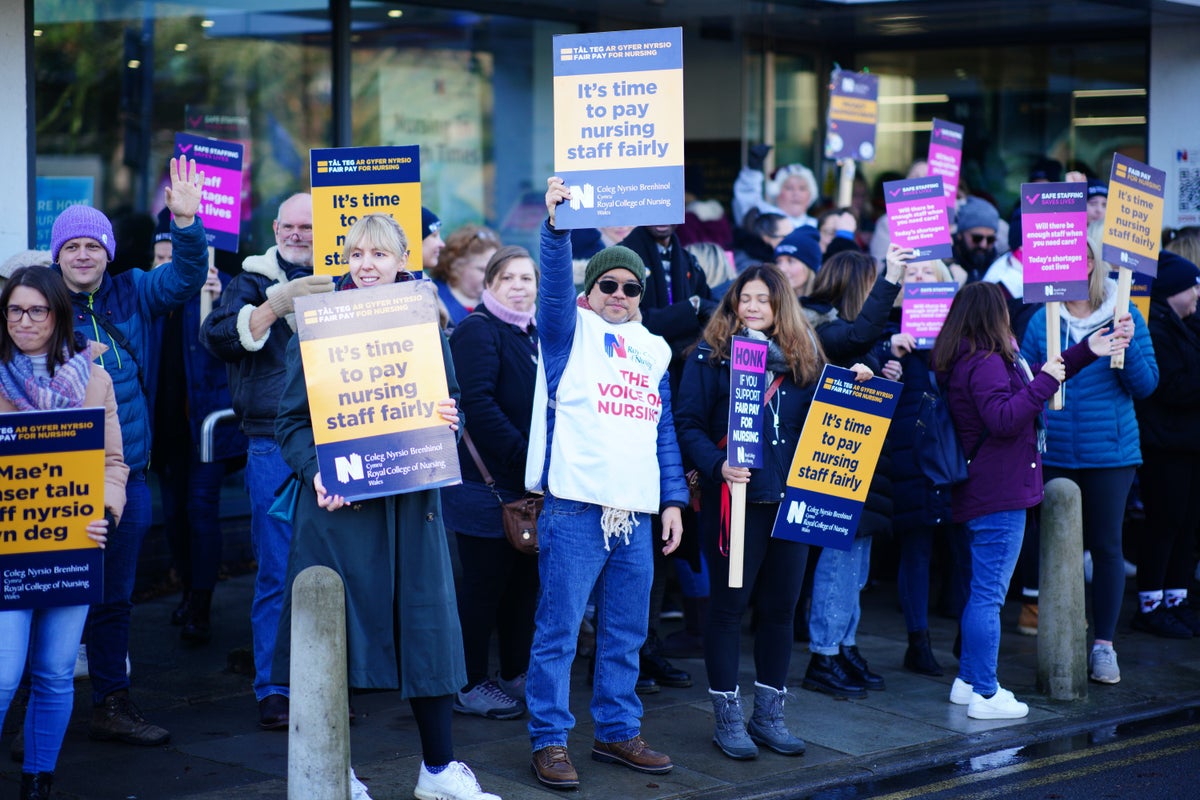
Nurses in Wales have begun a fresh wave of strikes amid a bitter dispute over pay.
The Royal College of Nursing said its members would walk out on June 6 and 7.
But the union has agreed a number of exemptions, including cancer care, critical care and some children’s services.
And it said it will also staff a number of services on “night duty levels”, including emergency departments and community care.
It comes after union members rejected the Welsh Government’s revised pay offer in May.
However, because the deal was accepted by the majority of other unions, the Welsh Government implemented the deal.
The Welsh Government has said the average pay award for NHS staff in Wales – apart from doctors, dentists and senior managers – is 15.7% over two years from 2022/23 and 2023/24, 11.2% of which will be permanently in pay packets with the rest made up with one-off payments.
The RCN said the pay deal “does not go far enough to reward nursing staff fairly and support them with the spiralling cost of living” as it announced that strike action on June 6 and 7 and July 12 and 13 will go ahead as planned.
The union has called on the Welsh Government to reopen negotiations.
While we recognise the strength of feeling among members, we are disappointed that strike action is continuing despite the collective decision to accept the Agenda for Change pay offer by the Wales Partnership Forum Business Committee— Welsh Government spokesman
RCN’s Wales director, Helen Whyley, said: “Until the Minister for Health and Social Services reopens meaningful negotiations to try to resolve our dispute, we will, once again, stand shoulder to shoulder on the picket lines across Wales.
“If two consecutive days of strike action still does not shake the Welsh Government to listen to the voice of nursing in Wales and take actions to resolve our dispute, we will return to the picket lines once again in July.
“Nursing staff are looking for a fair settlement that shows the Government values and understands their profession now and into the future.
“Nursing makes up the largest portion of the NHS. The Welsh Government should heed our concerns about patients’ safety and wellbeing and the nursing profession future.
“We will continue to be guided by our members, who are best placed to make decisions on what they consider to be an adequate acknowledgement of their skills and value in the NHS.
“Our statutory industrial action ballot for more strike action will open in early July.”
A Welsh Government spokesman said: “While we recognise the strength of feeling among members, we are disappointed that strike action is continuing despite the collective decision to accept the Agenda for Change pay offer by the Wales Partnership Forum Business Committee.
“We are working with the NHS, unions and partners to ensure life-saving and life-maintaining care is provided during the industrial action, patient safety is maintained and disruption is minimised.
“But it is vital that all of us to do all we can to minimise pressure on our health service during the industrial action and consider carefully what activities we take part in.
“Anyone in immediate danger should call 999 and we encourage people to use the NHS 111 Wales website for health advice where there is no immediate threat to life, or speak to or visit a pharmacist, GP or minor injuries unit.”







